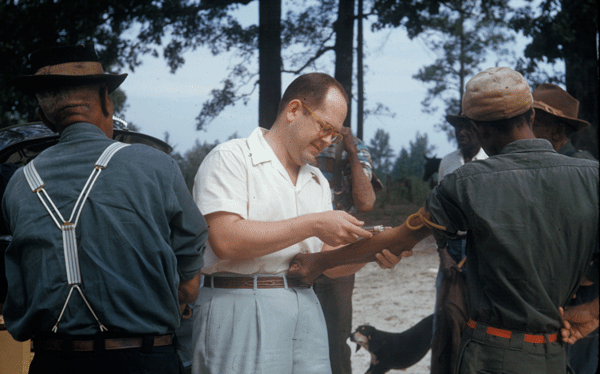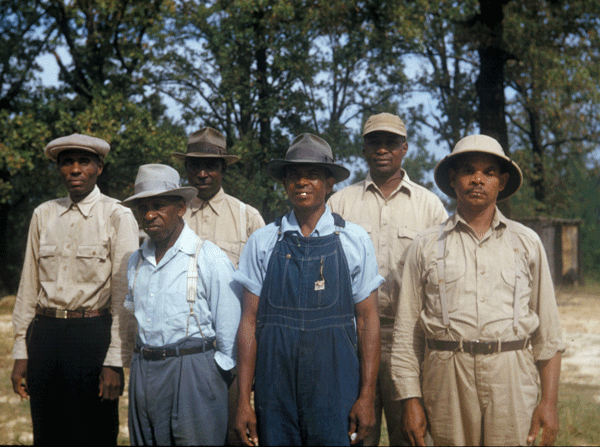
by
It has been 45 years since the nation learned that more than 600 African-American men from rural Alabama were experimented on without their consent, and left untreated in a notorious federally funded syphilis study.
The participants in the “U.S. Public Health Study of Untreated Syphilis in Negro Males in Macon County, Ala.,” have all since died. Ernest Hendon, who passed away in January 2004, was the last survivor. But this week, in the town where these husbands, fathers, brothers, and great-great grandfathers were recruited, they lived again through a great crowd of witnesses who gathered to tell stories.
The lives and fate of these men are now well-known through countless books and movies. And every first-year medical student learns about the syphilis study conducted from 1932 to 1972, in which a group of black men, some with syphilis, were given a placebo treatment and monitored while their health declined.
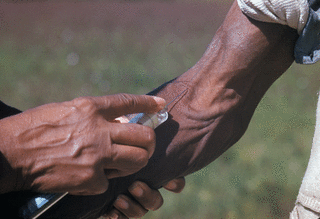
But few, if any of the descendants have found their way into the history books.
“We are here, we are alive, we need to be heard,” says Kimberly Whitley, one of the youngest members of Voices for Our Fathers Legacy Foundation, a new descendants’ organization. Whitley will be among the speakers during a week of solemn ceremonies, community forums, lectures and memorial services in Tuskegee, Ala.
Whitley, a 28-year-old Ph.D. candidate in Integrative Biosciences, is in her third-year. She’s eager to earn her white lab coat and set foot into Alabama’s Black Belt where she will begin her dissertation and research on health disparities and environmental justice. She grew up in the region and knows the legacy of racism, poverty and vulnerable people. Going into the research field, ethics are paramount, Whitley preaches.
Related: Study Connects Genes to Late Onset Alzheimer’s in African-Americans
“We can’t let what happened to my great-great grandfather happen again.”
If anything good came out of something so bad, Whitley says, “It’s been establishing the tenets of ethical research. As a result we have a framework. The public health workers never got written consent for what they did.”
For science and health students like Whitley, it’s a new day with rules. “We are being taught and are constantly learning about the ethical implications of what we do, and how to treat people with dignity and respect.”
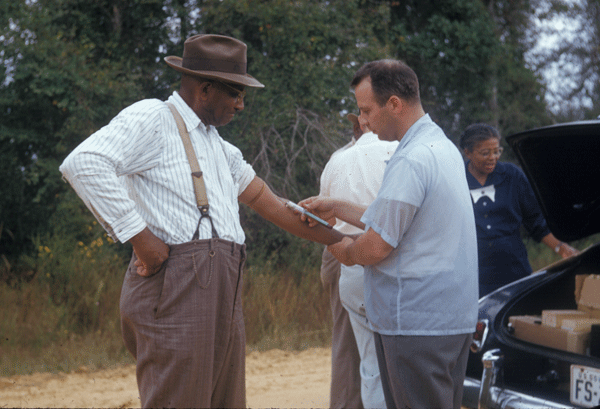
Finding Their Voices and Telling Stories
Until now, the wives, sons and daughters, great-great granddaughters and other relatives have remained in the shadows, largely unknown, unheard and unseen. When some of them relocated from Alabama to cities in the north, they wrapped up their pain, unanswered questions, anger, emotional scars, and decades of shame in silence, and carried it with them.
It’s only been about five years since these descendants have begun to find each other and organize to honor the legacy of their loved ones. They say their journey is about healing, and letting the nation know that they are ready to speak out. High on their action list, say the descendants, is shattering the picture of the men that history has painted with a broad brush. They were not “poor, ignorant and immoral,” say the descendants.
The men they knew and are learning about were community pillars, and family men, sharecroppers and business owners. And some sacrificed to send their children to college, something that they could only dream of doing.
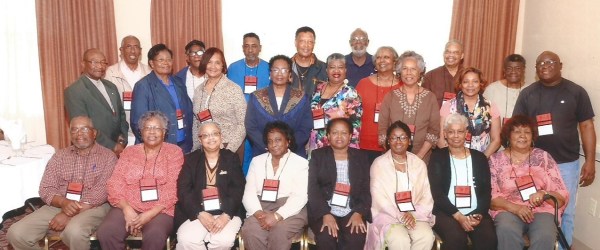
The families hope that their vigilance, too, can keep the grim chapter of medical history the syphilis study represents, from repeating. Lillie Head, 73, is the Voices’ co-chair. The organization, which is supported by grants, membership dues and donations, has worked in tandem with the National Center for Bioethics in Research and Health Care at Tuskegee University to launch and to chart a course for action. The center has also been a place members have turned to for help to heal and harvest their family stories, says Reuben Warren who directs the center.
The descendants are hosting the Community Day of Healing this week in Tuskegee and this marks the first time the community of Macon County will come together since President Bill Clinton issued a national apology to the victims on May 16, 1997.
It is also the first program the relatives have sponsored “to honor the lives of our fathers, grandfathers, great grandfathers and uncles who sacrificed their lives,” says Head, a retired school teacher and educational consultant in Virginia.

Her father, Freddie Lee Tyson, a carpenter, died at age 83. Head, like many of the relatives, learned along with the rest of country in 1972 that the men were a part of an unethical experiment that was allowed to wage for 40 years. She and other descendants remember the banner headline stories and photos in Ebony and Life that brought the news home—suddenly some hushed rumors, snatches of childhood memories, or code words like “bad blood” made sense.
“I was in my forties when I first found out,” Head recalls. “My brother Wallace saw the article in Ebony and my father verified that he was a part of the study.”
When he was alive, participant Ernest Hendon thought that there was no story he could weave about his ordeal. He was among the unfortunate history makers and strivers, duped into getting a bad deal, and not the medical care that they couldn’t afford. Hendon once said, “I was a nobody and all the men included in the experiment were nobodies, so there wasn’t a lot to say about it for years.”
Today, Hendon and the other men have a cloud of witnesses. The descendants are shaping new narratives and discovering that they also have a lot to say.
